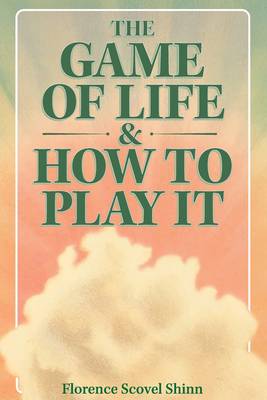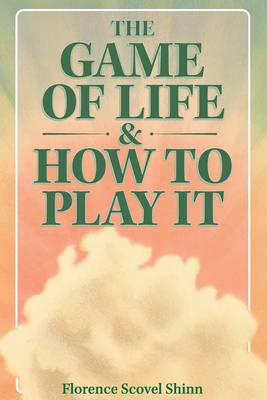
- Afhalen na 1 uur in een winkel met voorraad
- In januari gratis thuislevering in België
- Ruim aanbod met 7 miljoen producten
- Afhalen na 1 uur in een winkel met voorraad
- In januari gratis thuislevering in België
- Ruim aanbod met 7 miljoen producten
Omschrijving
The Game of Life and How to Play It is a short work of metaphysics by American artist, illustrator, and New Thought teacher Florence Scovel Shinn. Published in 1925, this book explores the foundations of Shinn's philosophy - that what one puts out into the world is what one receives back.
Shinn began her career as an artist and illustrator, drawing for Harper's magazine and several popular novels. After her marriage to artist Everett Shinn ended in 1912, she began to explore the nature of life more thoroughly, and became a writer and well-known teacher of New Thought. Her lectures and talks in New York City were well-attended, and she was a popular personality in the movement.
Her primary philosophy, explained in The Game of Life and How to Play It, is that, "The Game of Life is a game of boomerangs. Man's thoughts, deeds and words, return to him sooner or later, with astounding accuracy." But while she refers to it as "a game," Shinn acknowledges that it's not an easy one to play. Plagued with fear and self-doubt, it's a constant struggle to maintain control of one's thoughts. Drawing from the Bible and anecdotes as her primary sources, she explores the subconscious, conscious, and superconscious minds, and how they work together either in service of or opposition to our wants and desires.
The subconscious is "power, without direction." It has the ability to bring about the events that the conscious mind observes or images. This can be a wonderful thing if we're able to direct this power to our own benefit. But if we submit to doubts and negative self-talk, we can create the very circumstances that we hope to avoid. Even joking can lead to that which we fear. As Shinn writes, "The subconscious mind has no sense of humor and people often joke themselves into unhappy experiences."
The conscious mind sees life as it appears to be. It observes and impresses the subconscious with its interpretations of what it sees - and these are often negative thoughts. In order to convince the subconscious mind, one must only bring that which serves it through one's consciousness. This can be done through affirmations, and by behaving as if one already has the gifts they seek. "If one asks for success and prepares for failure," she writes, "he will get the situation he has prepared for." Merely asking isn't enough! But how do we know what best serves us? These are the flashes of insight in the superconscious, where we are given the gift of intuition by God, the "Infinite Intelligence."
In the end, "All power is given man (through right thinking) to bring his heaven upon his earth, and this is the goal of the 'Game of Life.'"
Shinn was not the first to espouse these ideas. She may have been influenced by the writings of New Thought thinkers like Mary Baker Eddy and Charles and Myrtle Fillmore. Where Shinn stands out in the sea of metaphysical writers was the accessibility of her language. Written in simple English, with plenty of examples and illustrations, Shinn is able to connect with readers who may be exploring the topic for the first time.
She continued in this way in her later works. These include Your Word is Your Want, which is a book of affirmations, and The Secret Door to Success, a collection of talks and lectures that she gave in New York City in the 1920s and 1930s.
Shinn's work has had a long-lasting impact on later metaphysical thinkers, including influential writer/publisher Louise Hay and minister Norman Vincent Peale, author of the massively popular The Power of Positive Thinking.
Specificaties
Betrokkenen
- Auteur(s):
- Uitgeverij:
Inhoud
- Aantal bladzijden:
- 64
- Taal:
- Engels
Eigenschappen
- Productcode (EAN):
- 9781953450517
- Verschijningsdatum:
- 25/06/2021
- Uitvoering:
- Paperback
- Formaat:
- Trade paperback (VS)
- Afmetingen:
- 152 mm x 229 mm
- Gewicht:
- 104 g

Alleen bij Standaard Boekhandel
Beoordelingen
We publiceren alleen reviews die voldoen aan de voorwaarden voor reviews. Bekijk onze voorwaarden voor reviews.









